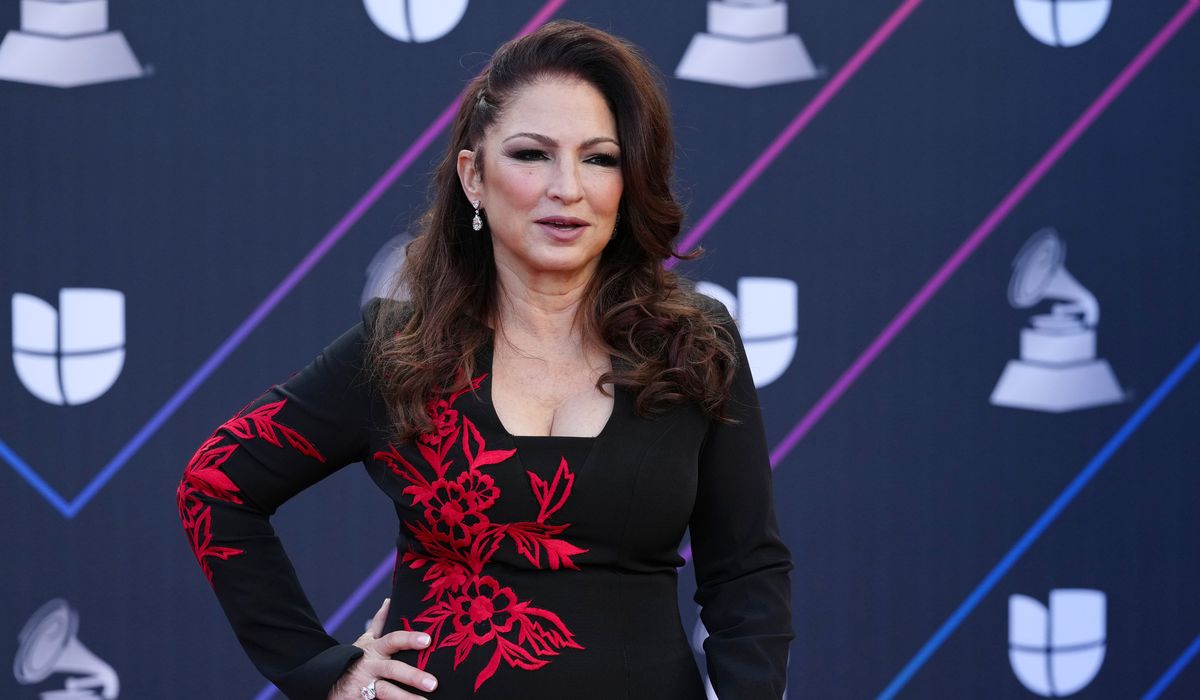
Music artists called on lawmakers on Wednesday to pass a bill that would force AM and FM radio broadcasting companies to pay royalties to performers when their songs are played on air.
Several members of the arts community, including singer Gloria Estefan, testified in front of the House Judiciary Committee to press lawmakers to close a loophole that allows terrestrial radio broadcasters to not pay artists.
Ms. Estefan, who has an estimated net worth of $500 million, said the pay-for-play measure would help lift up low-income artists and new performers who haven’t been able to tour during the COVID-19 pandemic.
“While I’m the one testifying before you today, I represent hundreds of thousands of Americans who endeavor to make a living making music,” Ms. Estefan told lawmakers. “You know these artists. They’re your family, your friends and neighbors. They sacrifice so much to pursue their passion for music, often having to take on multiple jobs to pay the bills.”
Ms. Estefan is one of many top artists who have long lobbied for Congress to take action on tweaking the law.
Though artists are paid for songs played on online streaming sites and satellite broadcasters like SiriusXM, only songwriters are paid royalties for songs played on AM and FM radio stations.
The U.S., along with Iran and North Korea, are the only countries in the world that don’t pay artists for AM and FM radio plays.
The American Music Fairness Act, led by Reps. Ted Deutch, Florida Democrat, and Darrell Issa, California Republican, would seek to remove the exemption on terrestrial stations.
Mr. Issa said the small fees that would be imposed on stations would be minuscule compared to the amount of annual revenue most broadcasters bring in.
“After more than 20 years of being told that you can’t afford a penny, I’m here to say this bill is … to say effectively all we’re asking for is a penny,” Mr. Issa said.
Mr. Deutch said passage of the bill would be a milestone for musicians to get paid for their labor.
“Music creators deserve to be paid when their music is played on the radio and Congress must listen,” Mr. Deutch tweeted ahead of the hearing.
Critics, however, argue that radio provides free promotion for artists and that an additional fee would unfairly hit local and minority-owned radio stations.
“As this committee in Congress considers this issue, we need to be cautious that our actions don’t further endanger broadcasters, particularly when it’s estimated that they provide billions of dollars in promotional value to artists,” said Rep. Steve Chabot, Ohio Republican who served as the committee’s interim ranking member on Wednesday.
The National Broadcasters Association indicated in a statement that it’s opposed to any kind of performance royalty imposed on local radio stations.
“For decades, broadcast radio has enjoyed a mutually beneficial relationship with the music industry, launching and sustaining the careers of countless artists, promoting album sales and streams, and helping to foster a robust music-creation environment that is the envy of the world,” NAB said.
The broadcast lobby, instead, urged Congress to pass the Local Radio Freedom Act, led by Reps. Kathy Castor, Florida Democrat, and Steve Womack, Arkansas Republican.
The legislation counters the pay-for-play bill, signaling that Congress should not impose any new broadcaster fees on music airplay.
Joe Crowley, a former New York congressman and president of the music-industry-backed musicFIRST Coalition, called the promotional argument null due to the now-largely online environment of how people are discovering music.
“There really is no promotional value [or] very minimal promotional value when it comes to AM-FM radio,” Mr. Crowley told The Washington Times. “They need to stop saying that because it’s insulting to the artists and insulting to the music makers themselves.”
Mike Huppe, president of the digital performance rights organization SoundExchange, said there’s been little success over more than a decade as he has sought to lobby this legislation, but today’s cultural climate may prove more receptive when it comes to the issue of fair pay.
“One of the arguments you may hear is this is just how it’s always been, and how the industry has grown up,” Mr. Huppe said in an interview. “That’s just never been a very acceptable response for anything in this world. Just because it’s been an injustice for the past 40 years doesn’t mean we should continue with this injustice.”








